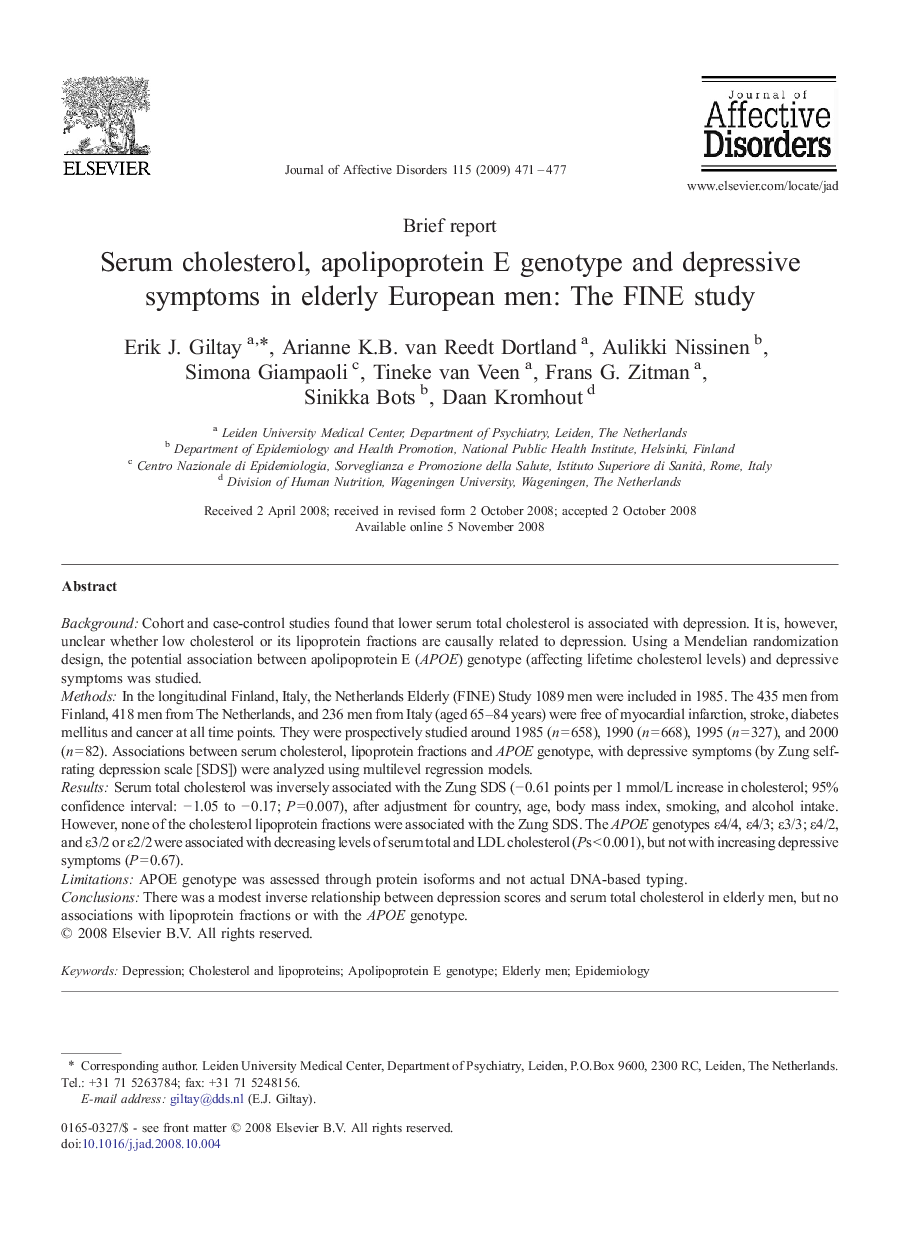| Article ID | Journal | Published Year | Pages | File Type |
|---|---|---|---|---|
| 4187163 | Journal of Affective Disorders | 2009 | 7 Pages |
BackgroundCohort and case-control studies found that lower serum total cholesterol is associated with depression. It is, however, unclear whether low cholesterol or its lipoprotein fractions are causally related to depression. Using a Mendelian randomization design, the potential association between apolipoprotein E (APOE) genotype (affecting lifetime cholesterol levels) and depressive symptoms was studied.MethodsIn the longitudinal Finland, Italy, the Netherlands Elderly (FINE) Study 1089 men were included in 1985. The 435 men from Finland, 418 men from The Netherlands, and 236 men from Italy (aged 65–84 years) were free of myocardial infarction, stroke, diabetes mellitus and cancer at all time points. They were prospectively studied around 1985 (n = 658), 1990 (n = 668), 1995 (n = 327), and 2000 (n = 82). Associations between serum cholesterol, lipoprotein fractions and APOE genotype, with depressive symptoms (by Zung self-rating depression scale [SDS]) were analyzed using multilevel regression models.ResultsSerum total cholesterol was inversely associated with the Zung SDS (− 0.61 points per 1 mmol/L increase in cholesterol; 95% confidence interval: − 1.05 to − 0.17; P = 0.007), after adjustment for country, age, body mass index, smoking, and alcohol intake. However, none of the cholesterol lipoprotein fractions were associated with the Zung SDS. The APOE genotypes ε4/4, ε4/3; ε3/3; ε4/2, and ε3/2 or ε2/2 were associated with decreasing levels of serum total and LDL cholesterol (Ps < 0.001), but not with increasing depressive symptoms (P = 0.67).LimitationsAPOE genotype was assessed through protein isoforms and not actual DNA-based typing.ConclusionsThere was a modest inverse relationship between depression scores and serum total cholesterol in elderly men, but no associations with lipoprotein fractions or with the APOE genotype.
